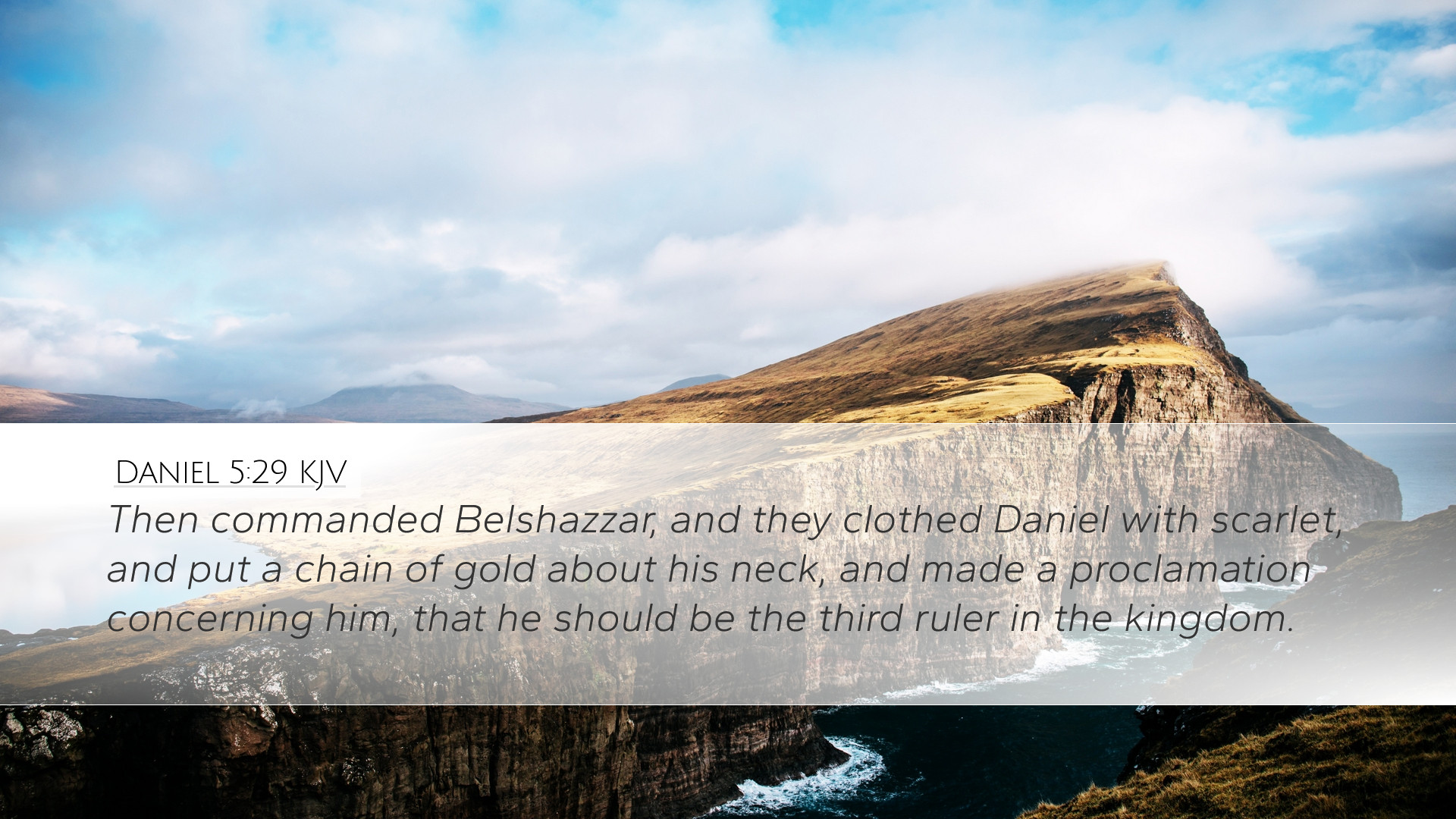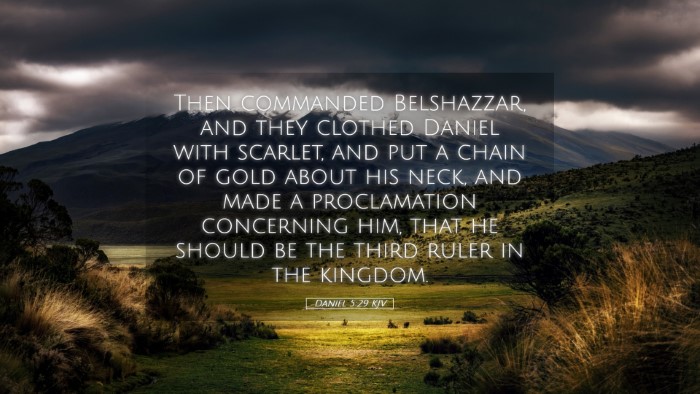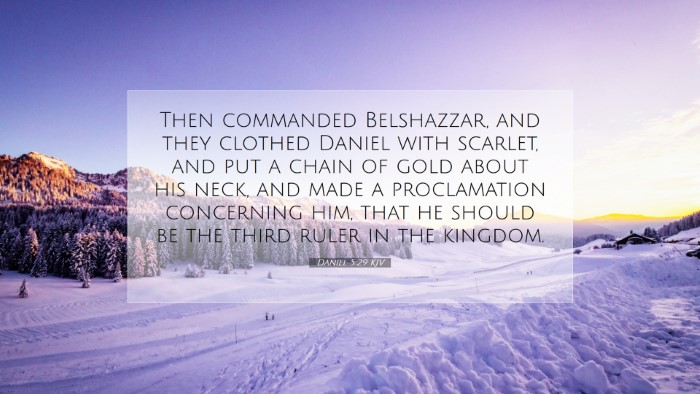Commentary on Daniel 5:29
Daniel 5:29 states: "Then commanded Belshazzar, and they clothed Daniel with scarlet, and put a chain of gold about his neck, and made a proclamation concerning him, that he should be the third ruler in the kingdom." This verse marks a significant moment in the narrative of the Babylonian empire's decline, revealing themes of recognition, authority, and the inevitability of divine judgment.
Contextual Background
To fully understand Daniel 5:29, it is essential to consider the historical and literary context of the Book of Daniel. This prophetic book is set against the backdrop of the Babylonian exile, where Jewish people faced cultural displacement. Chapter 5 narrates the story of Belshazzar's feast, where the king displays his arrogance by using sacred vessels from the Jerusalem temple to drink wine. This act of blasphemy elicits a supernatural judgment manifested in the writing on the wall, interpreted by Daniel.
Verse Analysis
Recognition of Daniel
In Daniel 5:29, we observe Belshazzar's recognition of Daniel as a man of wisdom and insight, but this acknowledgment comes at a moment of desperation following the ominous handwriting. Matthew Henry emphasizes that sometimes recognition of one’s gifts comes too late, signifying how the ungodly often fail to value the servants of God until their own circumstances become dire.
Clothing and Honor
Belshazzar dresses Daniel in scarlet—a color often associated with royalty and authority. Albert Barnes notes that this act symbolizes the king's acknowledgment of Daniel's significant abilities and the restoration of honor to someone who remains faithful to God amidst a corrupt society. The clothing of scarlet is a visual representation of the high esteem and position conferred upon Daniel, albeit fleeting.
Chain of Gold
The golden chain placed about Daniel's neck serves as a symbol of delegated authority. Adam Clarke views this adornment as a sign of a high office. However, it is crucial to recognize that this position is granted under the duress of impending doom for the Babylonian control. The chain signifies that the acknowledgment of one's worth does not always result in lasting power, especially when juxtaposed with the providential unfolding of history.
Theological Implications
This brief narrative spotlights the tension between divine sovereignty and human authority. The fact that a faithful servant of God is honored by an idolatrous king raises profound questions about God's ways in history. The manner in which God orchestrates events—allowing Daniel to be recognized even as Babylon's end draws near—reflects the understanding that God is always in control, even when human institutions appear to thrive.
God's Sovereignty
Throughout the Book of Daniel, humanity's apparent power is shown to be temporary, emphasizing a constant point made by Matthew Henry: that God's judgment prevails in all circumstances and will bring about the ultimate downfall of the proud. Belshazzar's attempted elevation of Daniel ultimately serves to highlight the futility of placing trust in human governance when divine judgment is at hand.
Call to Faithfulness
Thus, the passage serves both as an encouragement and a warning for contemporary believers. For students of Scripture and pastors, this moment illustrates the necessity of faithfulness in a secular environment. Daniel’s integrity contrasts sharply with the decadence of kingly power—an example for anyone striving to maintain a godly witness in challenging cultural situations.
Conclusion
In conclusion, Daniel 5:29 offers rich insights into the biblical narrative of power dynamics, the recognition of God's faithful servants, and the overarching theme of divine sovereignty. As believers reflect on this passage, they are called to acknowledge God’s authority over earthly kingdoms and remain steadfast in their commitment to righteousness, no matter the circumstances. The legacy of Daniel serves as a reminder that true honor comes from God, and that faithfulness in service to Him is the highest calling.


